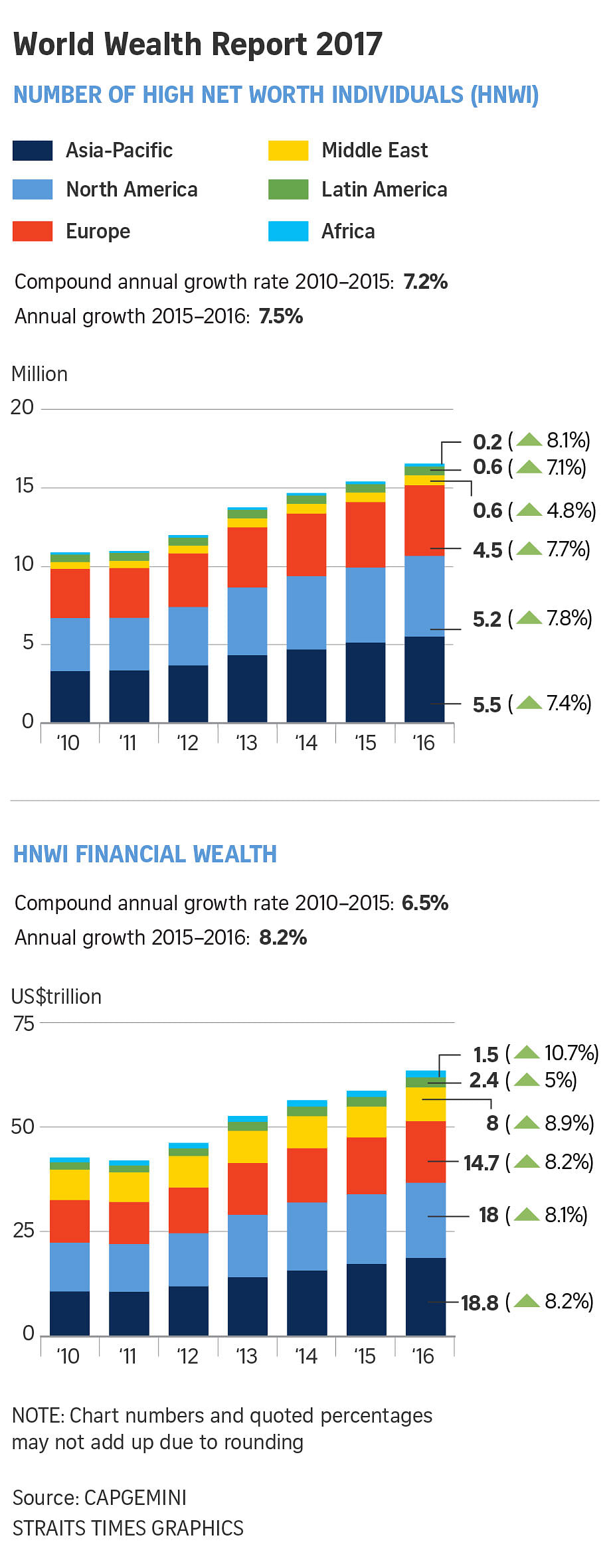SINGAPORE - Wealthy people around the world would be open to using wealth management services offered by technology firms such as Google, Apple, Facebook, or Amazon , according to a report out on Thursday (Sept 28).
Capgemini's 2017 World Wealth Report found that 56.2 per cent of the ultra-wealthy polled would consider such services from tech giants, but this rises to 81.7 per cent among the younger wealthy.
Around 72.5 per cent of those polled in Asia Pacific, excluding Japan, were amenable to using wealth management services by such firms.
The report surveyed more than 2,500 high-net-worth individuals in 19 countries, with about 1,100 from Asia Pacific.
It noted: "Firms have reason to be wary of 'BigTechs' as (the wealthy) are open to having their wealth management needs serviced by these firms.
"So far, only a few BigTech firms such as Alibaba and Amazon have forayed, or signalled an intent to foray, into the business of wealth management in a significant way. But the knowledge that they could do so - and do it well - is a threat that looms large over the industry."
Wealthy people across the world voiced two major concerns about these tech firms going into wealth management, with 53.6 per cent citing data privacy and security.
Product transparency was more of an issue in Singapore, with 50 per cent saying so.

One way to keep clients interested is what Capgemini calls "hybrid-advice models", that employ both humans and digital tools.
About 70.6 per cent of the wealthy in Asia Pacific, excluding Japan, were the most satisfied with the hybrid models, for instance.
"While the benefits of hybrid advice are attractive, there is no shortage of challenges related to implementing and sustaining a high-performing hybrid-advice model," said the report.
"Some of these, including budgetary, regulatory, and technology constraints, have been entrenched for some time."


